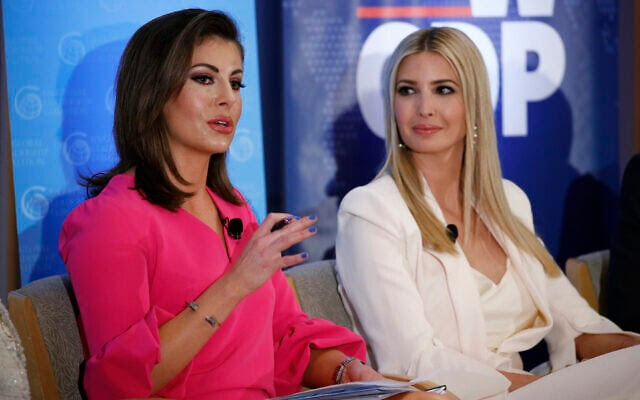Morgan Ortagus Appointed as Deputy Special Presidential Envoy for Middle East Peace

Washington DC: In a move that highlights the Trump administration’s focus on Middle Eastern diplomacy, President-elect Donald Trump announced Morgan Ortagus as the Deputy Special Presidential Envoy for Middle East Peace. The announcement, made on Trump’s social media platform, Truth Social, has been widely praised by key Republican figures, signaling a commitment to both party unity and regional stability.
Ortagus, who previously served as spokesperson for the State Department and as a member of the Abraham Accords team, brings extensive experience in foreign affairs and national security to the role. Her appointment is seen as a strategic decision to strengthen U.S. influence in the Middle East and advance the goals of peace and economic cooperation.
A Proven Diplomatic Record
Morgan Ortagus’s background is steeped in international diplomacy and regional expertise. As a key figure in the Abraham Accords negotiations, she contributed to groundbreaking agreements that normalized relations between Israel and several Arab nations, fostering a new era of cooperation in the Middle East. Her work as the U.S. Treasury attaché to Saudi Arabia further cemented her understanding of the economic and political dynamics of the region.
Her military service as a U.S. Navy Reserve Intelligence Officer adds to her qualifications, providing a unique perspective on security and intelligence matters critical to Middle Eastern diplomacy.
Republican Support and Strategic Vision
The appointment has received strong backing from prominent Republicans, including Senator Lindsey Graham, who commended Ortagus’s deep understanding of Middle Eastern dynamics. Graham described her as “an excellent choice” for the role, reflecting the broader party consensus on her qualifications and potential impact.
Trump emphasized the importance of Ortagus’s appointment, stating that her experience and leadership will be vital in bringing “calm and prosperity” to the region. He acknowledged the inherent challenges of Middle Eastern diplomacy but expressed optimism about her ability to navigate them effectively.
Building on the Abraham Accords
Ortagus’s appointment comes at a critical juncture for U.S.-Middle East relations. The Abraham Accords, a hallmark of the Trump administration’s first term, laid the groundwork for unprecedented cooperation between Israel and its Arab neighbors. Ortagus’s role will likely focus on expanding these agreements, fostering trade, and strengthening diplomatic ties across the region.
Her appointment also reflects a broader strategy to integrate economic development into peacebuilding efforts. By leveraging her experience in international finance and diplomacy, Ortagus is well-positioned to address both the political and economic dimensions of Middle Eastern stability.
Challenges and Opportunities
While Ortagus’s credentials are impressive, the complexities of Middle Eastern politics present significant challenges. Trump’s candid acknowledgment that “these things usually don’t work out” underscores the difficulty of achieving lasting peace in a historically volatile region.
However, her strong Republican support and bipartisan recognition provide a solid foundation for success. The administration’s focus on results and tangible progress will be crucial in navigating the unpredictable dynamics of the region.
A Symbol of Leadership
Ortagus’s appointment also highlights the growing role of women in high-stakes diplomacy. Her leadership in this critical position signals a shift toward greater inclusivity in international relations, inspiring future female leaders to take on similar roles.
The Path Forward
As the Trump administration prepares to take office, Morgan Ortagus’s appointment as Deputy Special Presidential Envoy for Middle East Peace represents a pivotal moment in U.S. foreign policy. With her extensive experience, bipartisan support, and a clear focus on expanding the Abraham Accords, Ortagus is poised to play a central role in advancing peace and prosperity in the Middle East.
The coming months will test the administration’s ability to deliver on its promises, but Ortagus’s expertise and leadership provide a promising start. Her success could mark a new chapter in U.S.-Middle East relations and set the stage for a more stable and cooperative future in the region.